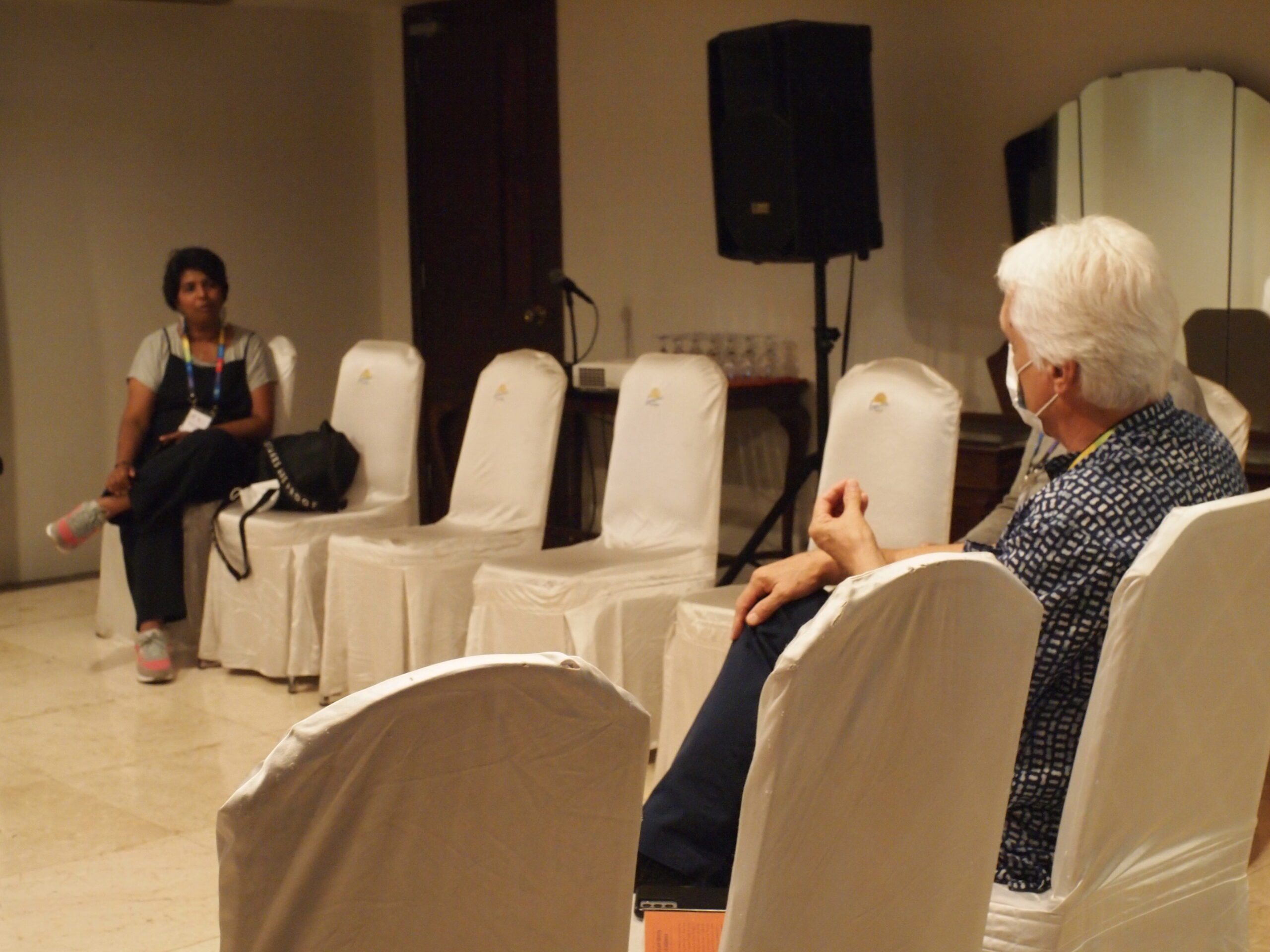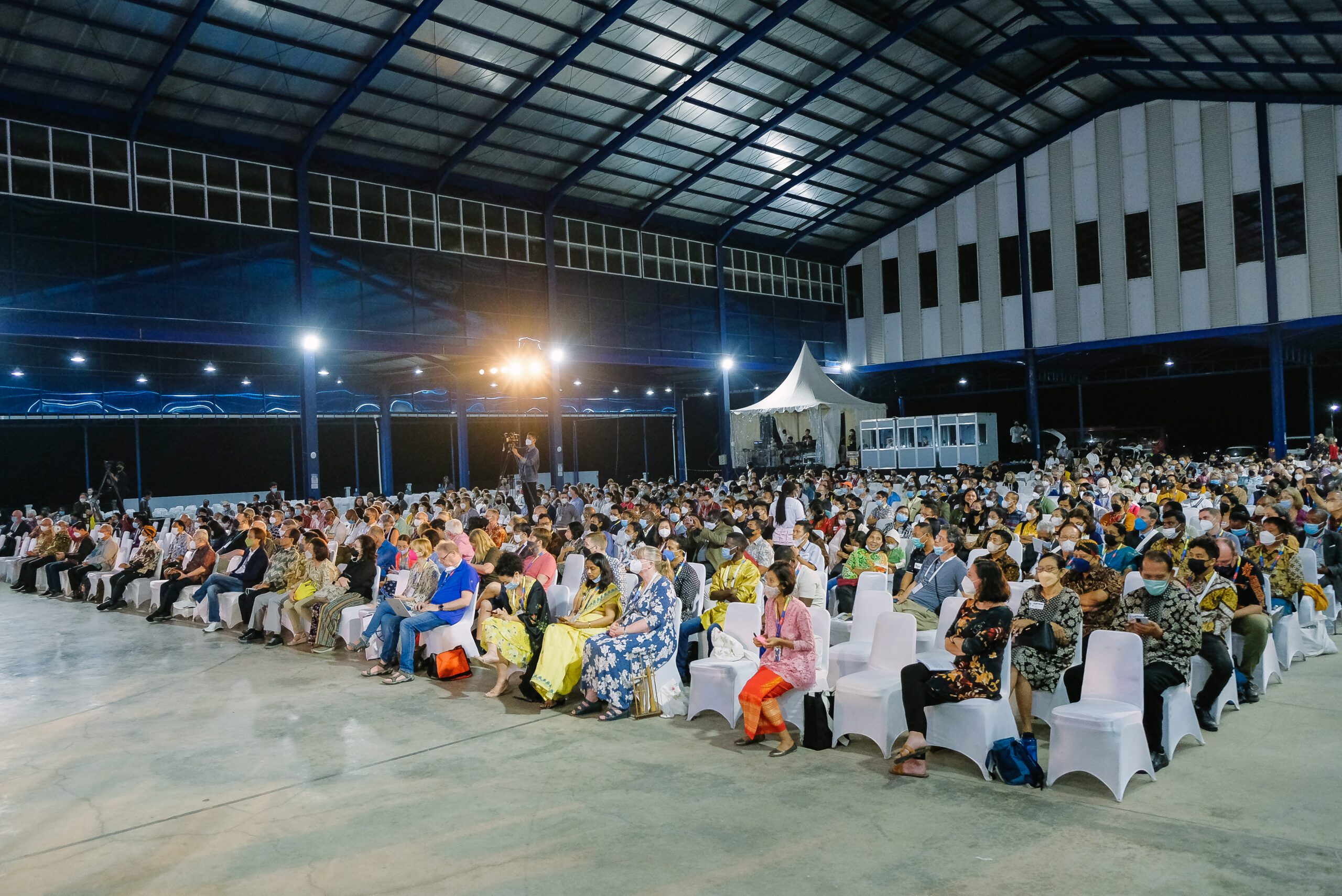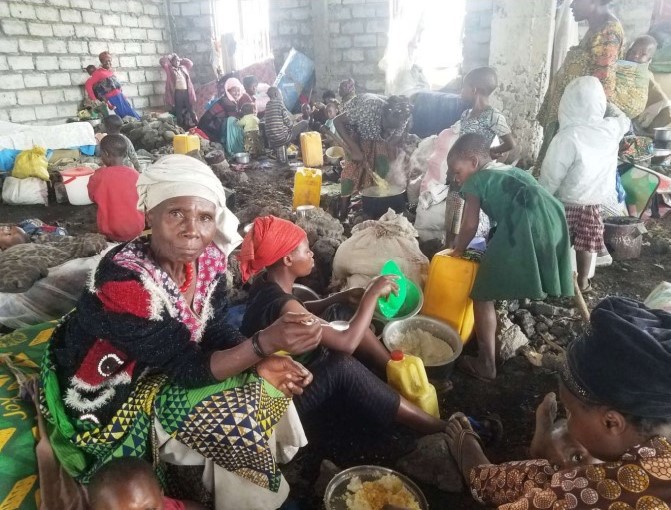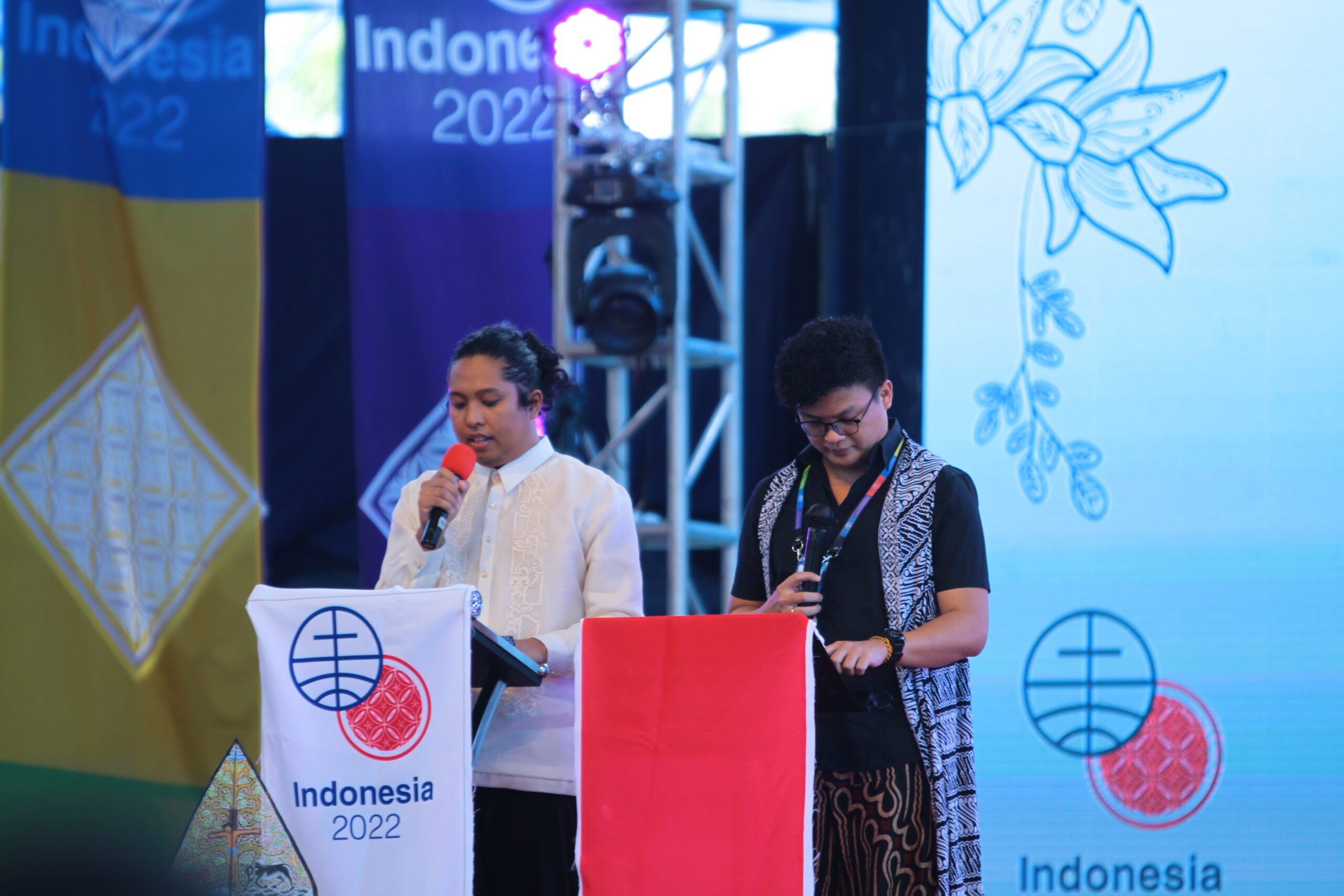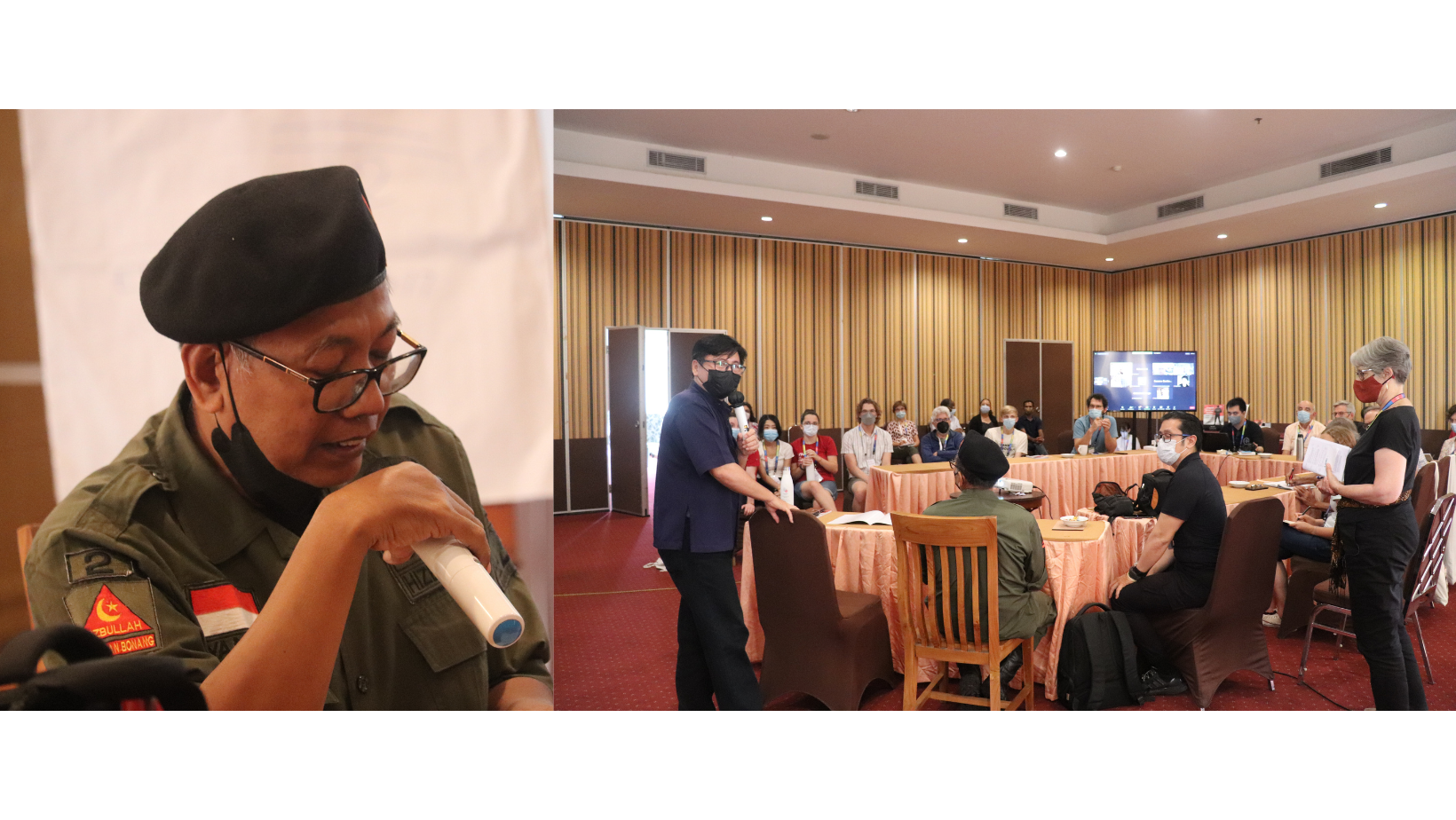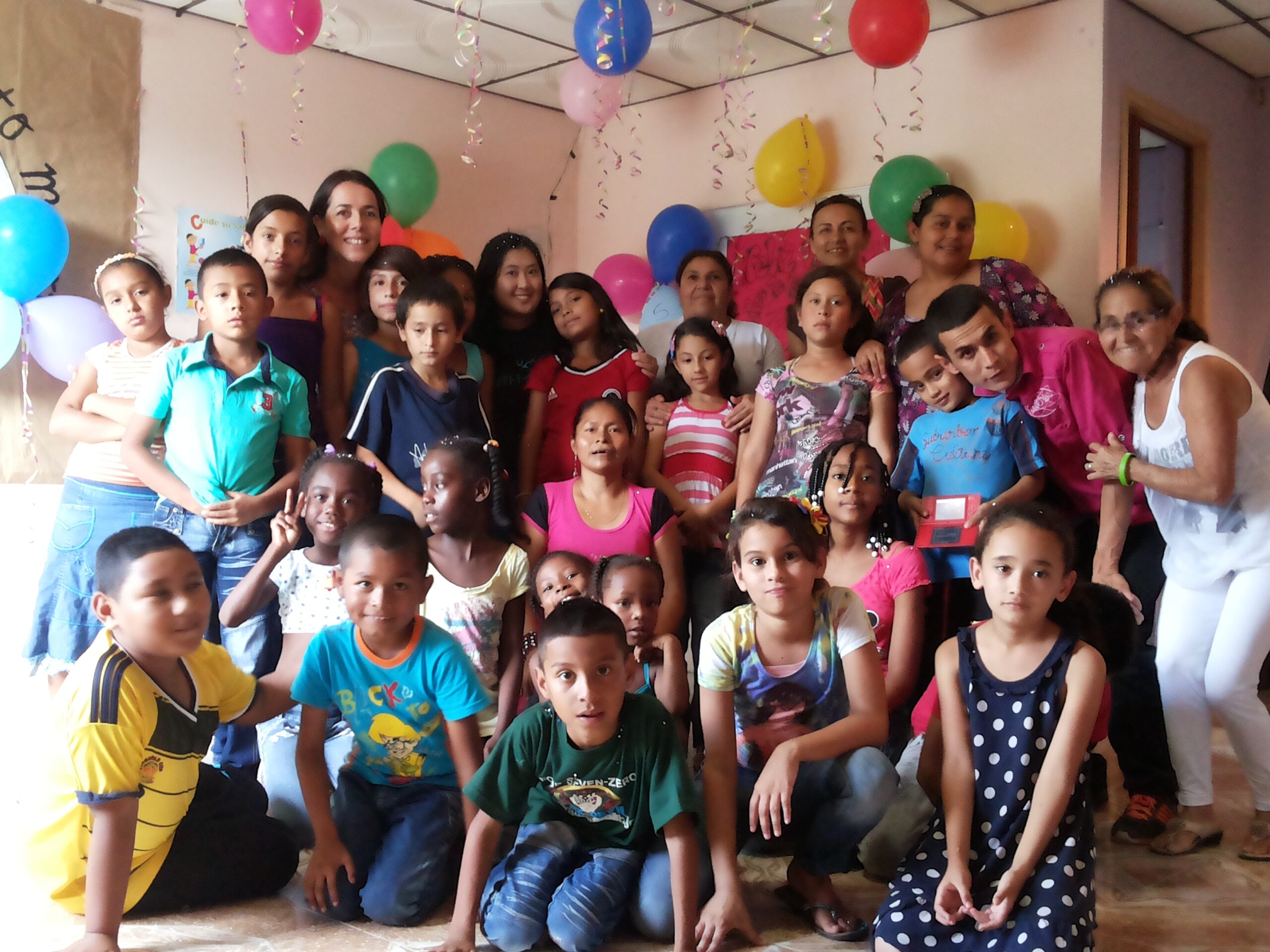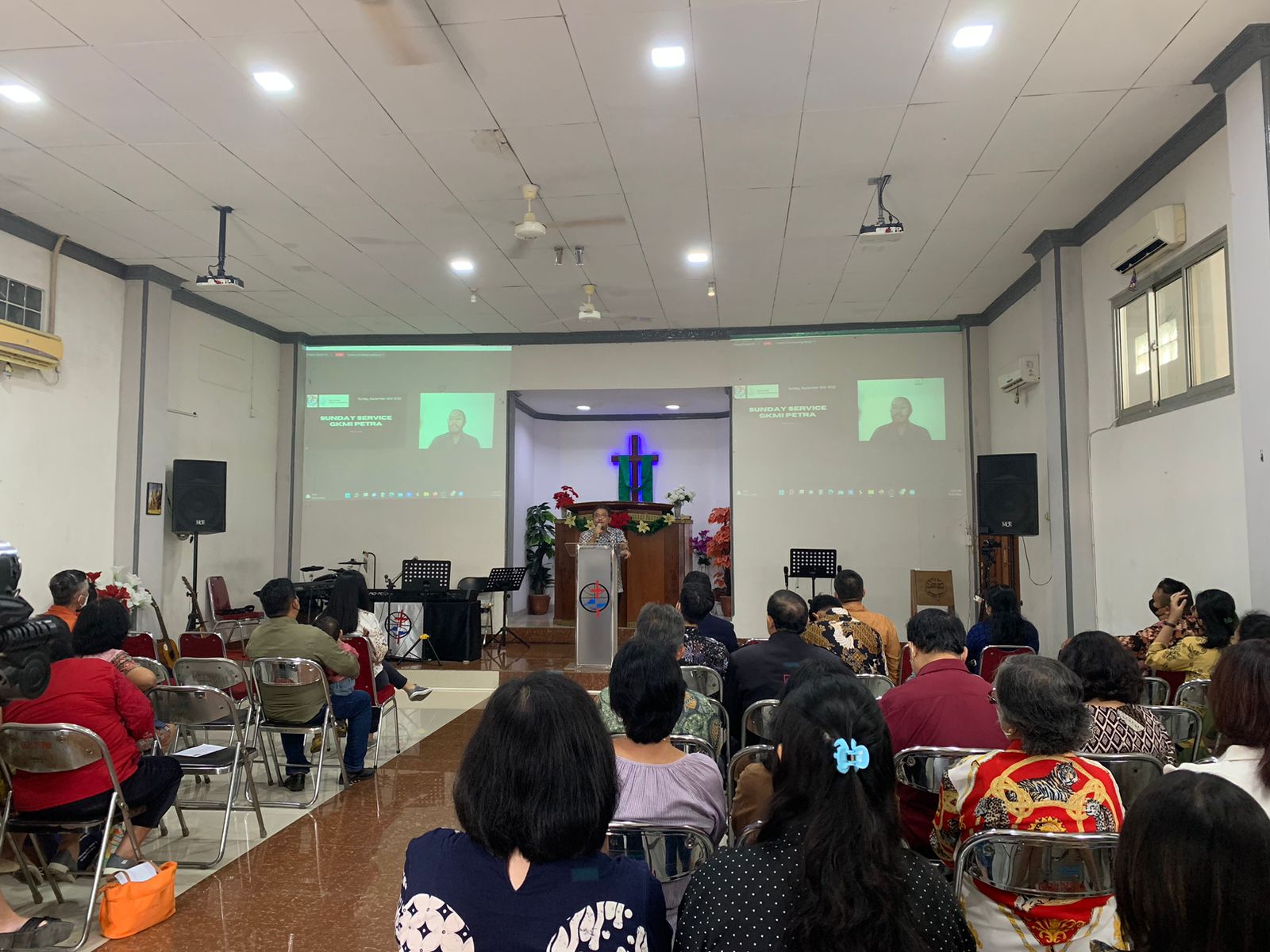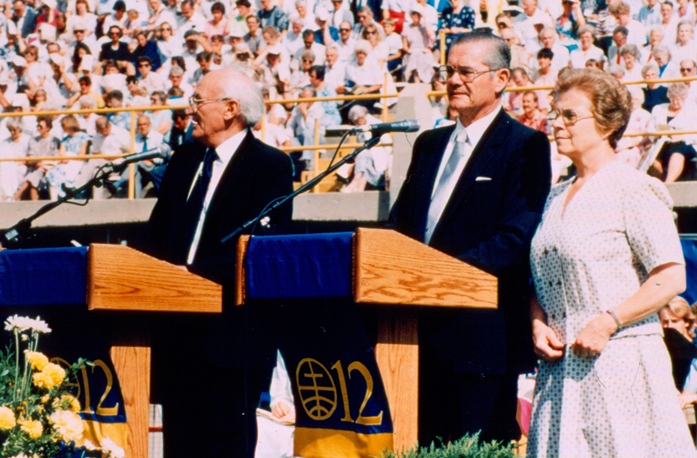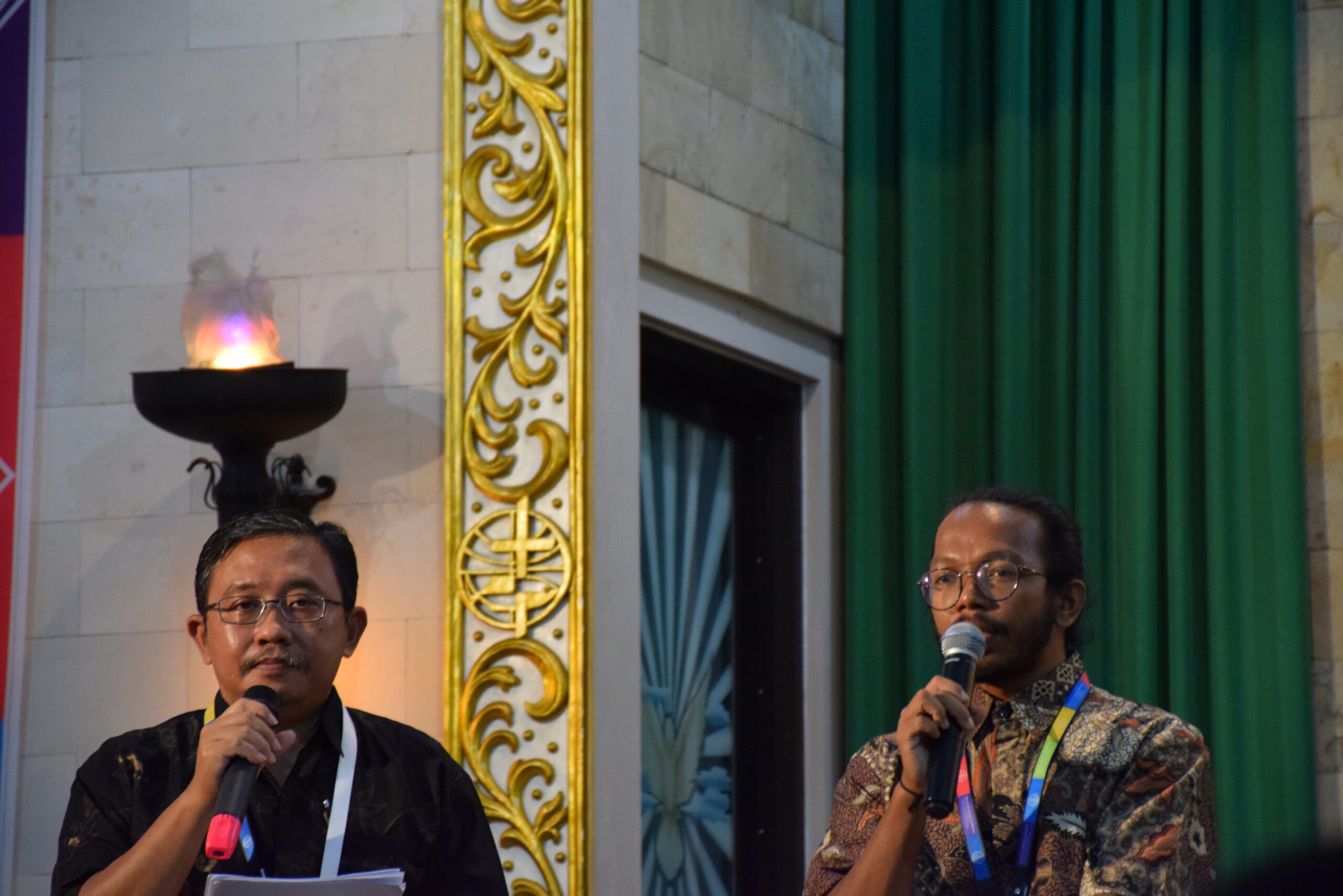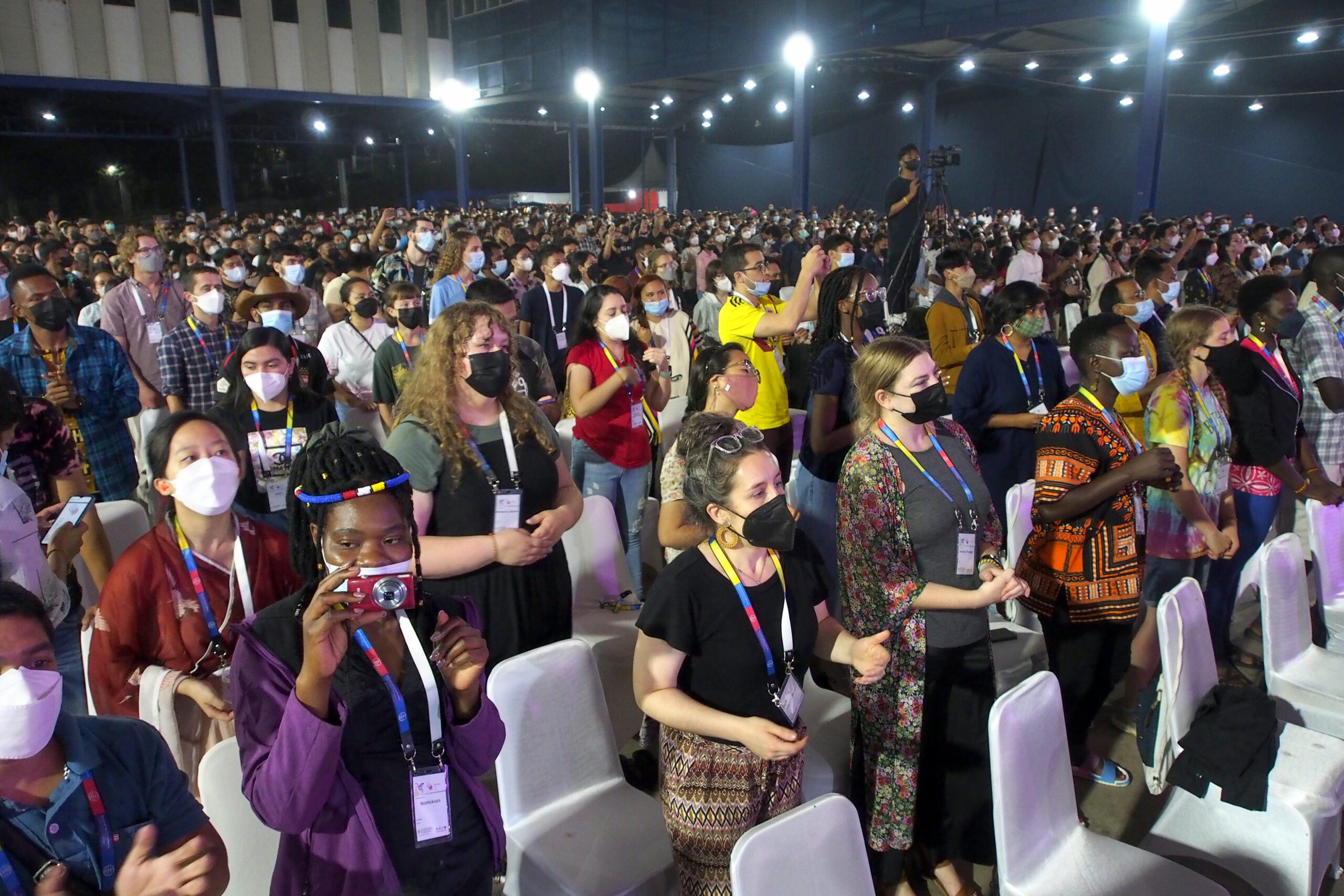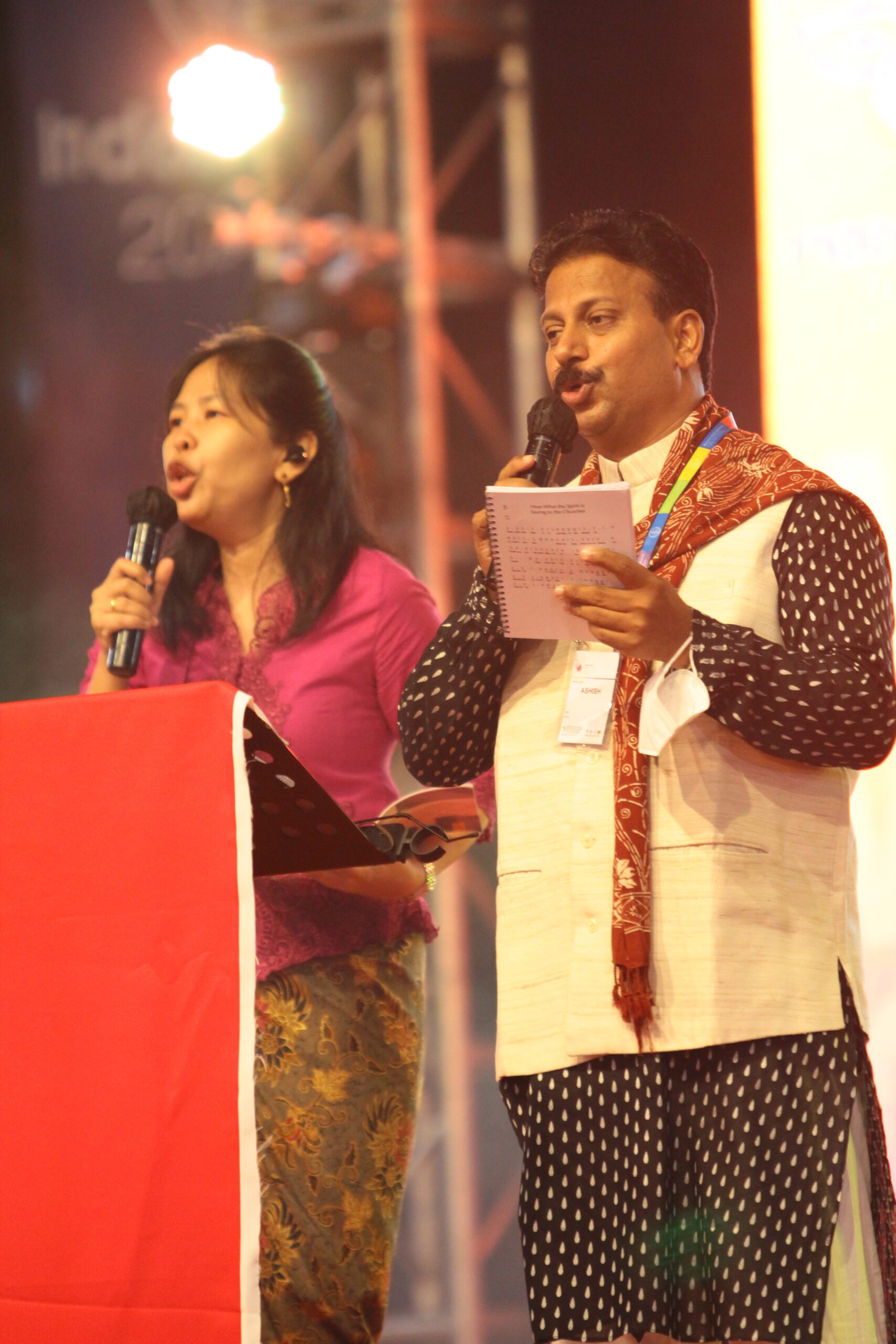-
Le rendez-vous manqué du Réseau Mennonite Francophone
Le Réseau Mennonite Francophone (RMF monde) de la Conférence Mennonite Mondiale ne se réunit officiellement que tous les trois ans. C’est-à-dire lors des réunions des délégués de la CMM. En Indonésie, seules 12 personnes étaient présentes à la réunion dont quatre Congolais, les seuls Africains ! Quand on pense que nous étions plus de 80…
-
The face of the global church
“MWC [Assembly] was a really wonderful experience. It showed me the face of the global Mennonite church,” says Peter Buller, a student at Bethel College and a member of Buhler Mennonite Church, Kansas, USA. “Thanks to the great International Ensemble that brought different languages and cultures to life.” That global face is visible online through…
-
Call to prayer: DR Congo
“But you, O Lord, do not be far away! O my help, come quickly to my aid!” Psalm 22:19 “We raise a cry of alarm to the different faithful members of the Mennonite church around the world,” writes Reverend Alphonse Kisubi Kassa, a leader of Communauté des Églises des Frères Mennonites au Congo (CEFMC –…
-
We are the hands of God in times of crisis
Trust in the power of the Holy Spirit that there is hope in this difficult time. We, as a communion of churches, will be each other’s help in times of need. When the power of the Holy Spirit flows through us you cannot help but take action. The Holy Spirit is our driving force to…
-
A good kind of infidel
“We were far away from peace, but now we are friends with Christians. We are working for peace and humility.” Through an interpreter, Commander Yanni Rusmanto from Solo, Indonesia, spoke at the “Mennonites in Indonesia and Radical Muslims making peace” workshop at Assembly 17 in Indonesia. This was one of several workshops on interfaith relationships…
-
Ministry partner update: ICOMB – November 2022
We want to thank everyone who participated in the ICOMB Summit and Despertar in Brazil in May 2022. God is creating a new awakening in Brazil and for sure your contribution, either with your presence or with your prayers, is leading COBIM (Mennonite Brethren Convention in Brazil) to a new movement of God.
-
Unexpected placement equips for future service
Stephanie Setiawan from Sidoarjo, Indonesia, had no plan to go to Latin America. She applied for Mennonite Central Committee’s International Volunteer Exchange Program in 2013/2014, but the slot for her synod was already taken. The coordinators offered her a YAMEN placement in Colombia instead. As a result, Stephanie Setiawan discovered a love for Latin culture…
-
Young people lead barrier crossing
GKMI Petra-Depok, Indonesia, celebrated being a new creation on Peace Sunday, 18 September 2022, with a special guest. Sadanand Hembrom joined the service from India by video. For the last few years, GKMI Petra-Depok in greater Jakarta has been going beyond their church walls to spread the good news. Before the pandemic, they had several…
-
Raúl O. García
Raúl O. García, Mennonite World Conference president 1990-1997 died 30 October 2022. A long-term pastor, teacher and professor, he was born in Argentina 26 August 1930.
-
We speak the same language
“I cannot be grateful enough that even though we are a large and diverse group, we speak the same language: the language of love for Christ and his people,” says Daniel Nugroho. He was part of the team that made it possible for all to understand. Up to four interpreters from a team of 21…
-
Global Youth Summit (GYS)
Life in the Spirit: Learn, Serve, Worship 34 delegates: 4 from North America, 4 from Europe, 11 from Asia, 6 from Africa, and 9 from Latin America. In delegate sessions, some common challenges for young people that surfaced were loneliness and the need for belonging, the need for good leadership, bridging the generation gap and…
-
Learning together to handle diversity
Wednesday morning There have always been two main kinds of learning: academic and experiential. Most of us have an inclination toward one or the other, but the reality is that both are necessary for learning. Knowledge doesn’t do anyone much good if it’s not applied. Alternatively, it’s often counterproductive and wasteful to implement something without…
